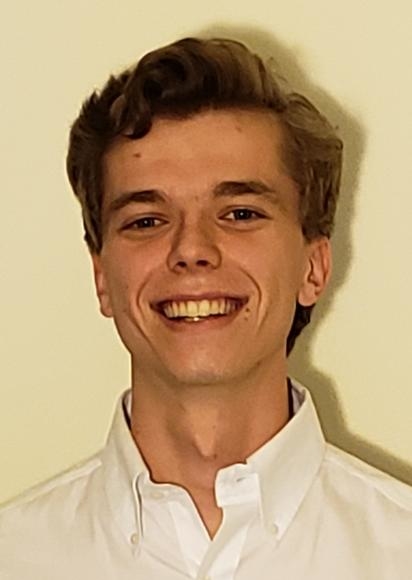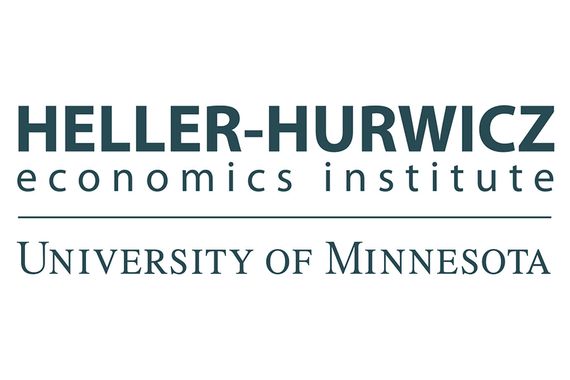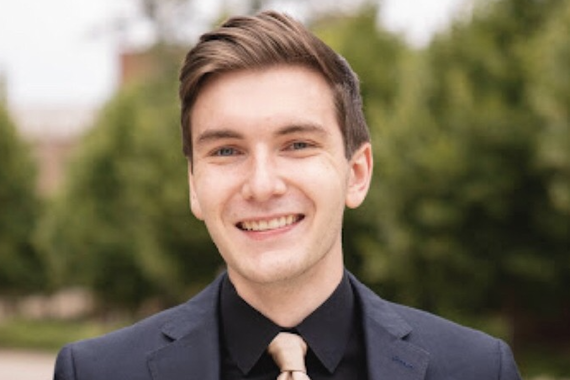Developing the Next Generation of Economics Researchers
In this interview, Mikolaj (Mick) Dueholm, a junior pursuing a Bachelor of Science in Economics and a Bachelor of Arts in History, talks about his journey from high school intern at the Minneapolis Federal Reserve to Research Assistant in the Heller Hurwicz Economics Institute. You can find out more about Mick’s research with Professors Ellen McGrattan and Anmol Bhandari here.

What made you want to attend the U of M?
"I have wanted to get involved in research since my junior and senior year of high school. With this goal in mind, it made sense for me to seek admission to a premier research institution such as the U of M, where leading economists both produce research and teach."
What interests you most about Economics? Why did you choose to be an Econ major?
"I was drawn to economics because it combines the theory and subjectivity of the social sciences with empirical rigor. As my knowledge of economics and math expands, I have found myself understanding more advanced and intriguing topics. Building expertise in economics is like learning a magic word that unlocks secrets about our economic reality.
“Monetary policy, central bank independence, and banking policy have long held my interest. These topics have been a focal point of my academic pursuits since I was fortunate enough to intern at the Federal Reserve Bank in Minneapolis. Subjects like money and monetary policy are simultaneously intangible and concrete. Inflation is a good example. Inflation directly impacts the economics of families and households, and there is an ongoing debate amongst economists about what causes inflation and what levels of inflation are acceptable.
At the same time, while debates about inflation have quantitative aspects, inflation is also driven by people's expectations, which showcases the dichotomy between economics rooted in analysis and aspects of economics that essentially work like Tinkerbell.”
What experiences or classes best prepared you for economics research?
“Econ 4431W, International Trade, was an exciting class in its own right, touching on many theoretical topics such as currency exchange and international trade. That class also prepared me for research by giving me the freedom to pick a topic for research and produce a paper using the same analysis methods and software used by professional economists.
I also participated in the Undergraduate Research Opportunities Program (UROP) in the History department, which familiarized me with efficient and practical ways to formulate research questions and communicate about research.”
What advice do you have for students interested in economics and economics research?
In general, however much math you are told to take, take more, especially if you are in the B.S. track for economics or want to do research. Quantitative skills help make advanced economics classes easier and are a prerequisite for doing the work of an RA.
Another thing to remember is that getting a research position is not easy. I cold emailed dozens of professors inside and outside the economics department looking for research opportunities. I also applied for the Heller-Hurwicz RA position multiple times before getting the position this year.
Tell me about a day in the life of an RA. What is day-to-day work like for an RA?
My work schedule has been flexible. I work about 15 hours per week and what I do varies considerably based on what the faculty want to have done. Sometimes I look into the next steps for the research process. Other days I perform analysis in a Python library called pandas or write code. I also read other research papers and think of new research questions or new angles or paths research could take. Lastly, I also prepare presentation slides for weekly meetings to discuss my progress with my faculty research advisors.
What would you say is the most valuable skill or most interesting insight you've gained from being an RA?
Classes tend to involve steady growth towards concrete learning objectives, but research can be a very winding path that often requires backtracking or even abandoning certain routes altogether. This can be frustrating, as it sometimes feels like one is wasting time or going in circles. Nevertheless, it takes practice to understand when to press forward and when to abandon dead ends. Ultimately, it’s important to trust the process and keep the big picture in perspective.
What topics do you think you may explore next?
“I am thinking of looking into corporate taxation or banking industry concentration.”


